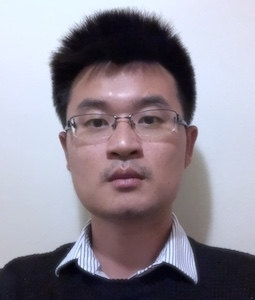Department of Chemistry and Biochemistry
Faculty and Staff Directory
Ting Ge
| Title: | Assistant Professor / Physical, Theoretical and Polymer |
| Department of Chemistry and Biochemistry | |
| Email: | [email protected] |
| Phone: | 803-576-6508 |
| Fax: | 803-777-9521 |
| Office: | Horizon I: RM 234 |
| Resources: | CV [pdf] All Publications Department of Chemistry and Biochemistry |

Education
B.S., 2007, University of Science and Technology of China
Ph.D., 2013, Johns Hopkins University
Honors and Awards
2023, Doctoral New Investigator research grant, ACS Petroleum Research Fund
2023, CAREER award, Division of Materials Research, NSF
2023, 35+1 challenges in materials science being tackled by PIs under 35(ish) in 2023,
Matter (Elsevier)
2022, Soft Matter Emerging Investigator, RSC Journal
2022, Southeastern Conference (SEC) Visiting Faculty Travel Grant, University of South
Carolina
2021, Recipient of ASPIRE I funding for junior faculty development, University of
South Carolina
Research Interests
Research Areas: Polymer conformation, dynamics, rheology, and mechanics; molecular simulations; multi-scale modeling of polymers
Ge group perform computational and theoretical research on polymer and soft materials.
Polymer Nanocomposites
Blending nanoparticles and matrix polymers yields polymer nanocomposites that often
possess improved material properties with respect to pure polymeric materials. Ge
group aim to systematically examine the effects of various molecular aspects, such
as the features of polymer chains grafted to nanoparticle surfaces, the interactions
between particles and surrounding matrix polymers, and the architectures and network
structures of matrix polymers, on the dynamics, mechanics, and thermal properties
of polymer nanocomposites. On the computational side, Ge group use molecular simulations
that have precise control of the molecular parameters and unparalleled access to the
information on the positions and dynamics of the nanoparticles and polymer chains.
With the aid of molecular simulations, and on the basis of molecular theories in polymer
and colloid sciences, Ge group develop theoretical models to link the macroscopic
material properties to the molecular parameters. The computational and theoretical
work is integrated into the experimental studies, both chemical synthesis and material
characterization, at U of SC.
Polymer Mechanics
Mechanical integrity is the foundation of the performance of any polymeric material.
Ge group study the large deformation and fracture mechanics of polymeric materials.
The goal is to elucidate the mechanical response across multiple length scales that
range from single bonds and network strands on the microscopic level to damage zone
and the entire sample on the macroscopic level. Ge group develop molecular models
for the mechanics of both a single polymer network and multiple interpenetrating networks,
bridging single-chain mechanics and macroscopic mechanics in the continuum limit.
To numerically capture the multi-scale nature, Ge group aim to design a computation
method that combines the computer simulations of molecular mechanics and the finite
element analysis in continuum mechanics. The multi-scale framework for the modeling
of polymer network mechanics will be evaluated experimentally at U of SC and applied
to guide the design of polymeric materials with superior mechanical properties.
Polymer Rheology
Everything flows. The branch of science that deals with how matter flows is termed
rheology. Ge group study the rheology of polymers in various states including polymer
melts, solutions, and blends. Ge group perform computational and theoretical research
to understand polymer rheology on the microscopic level. One particular focus is the
role of polymer architecture, such as non-concatenation of ring polymers. Deep physical
insight from the research by Ge group is combined with synthetic ingenuity and experimental
precision offered by peer scientists to foster the development of polymer rheology.
Selected Publications
T. Ge and M. Rubinstein, Mobility of Polymer-Tethered Nanoparticles in Unentangled Polymer Melts, Macromolecules, 2019, 52, 1536. DOI: 10.1021/acs.macromol.8b02138
T. Ge, G. S. Grest, and M. Rubinstein, Nanorheology of Entangled Polymer melts, Phys. Rev. Lett, 2018, 120, 057801. DOI: 10.1103/PhysRevLett.120.057801
T. Ge, S. Anogiannakis, C. Tzoumanekas, R. S. Hoy, and M. O. Robbins, Entanglements in glassy polymer crazing: crosslinks or tubes?, Macromolecules, 2017, 50, 459. DOI: 10.1021/acs.macomol.6b02125
T. Ge, S. Panyukov, and M. Rubinstein, Self-Similar Conformations and Dynamics in Entangled Melts and Solutions of Nonconcatenated Ring Polymers, Macromolecules, 2016, 49, 708. DOI: 10.1021/acs.macromol.5b02319
T. Ge, F. Pierce, D. Perahia, G. S. Grest, and M. O. Robbins, Molecular Dynamics Simulation of Polymer Welding: Strength From Entanglements, Phys. Rev. Lett, 2013, 110, 098301. DOI: 10.1103/PhysRevLett.110.098301